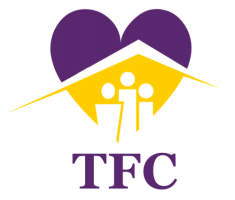Waiting on the Back Porch
"My boy," said the father, "you are always with me, and everything I have is yours. How could we help celebrating this happy day? Your brother here was dead and has come back to life, was lost and is found." Luke 15:31, 32, NEB.
Have you ever felt like the elder son in the story of the prodigal son? Perhaps you have upheld the moral standards of our church; been consistently strict with your diet; abstained from harmful drugs; stayed by while others sowed their wild oats. Isn't that important to God? Isn't He pleased with your righteousness? Shouldn't the prodigals in the world have to prove they have really repented and reformed? Why should there be celebration when they deserve censure?
To the older son it just didn't seem right to celebrate over someone who had wasted his life on wine and women. Jealousy makes a person lash out, or pout. And in this story the older son pouted. He walked away and refused to participate.
But the point of the story is this: God never gives up on any of us. He loves the proud Pharisee and the hopeless publican. Both are His children. God loves both unconditionally—while they are yet sinners. He wants both "inside" the family of God.
So the story tells how the father tried to reason lovingly with his angry older son. "My boy," he began gently. He assured the older brother that "everything I have is yours."
Yes, there are rewards for conscientious religious efforts. Those who stay in the church have the blessings that accompany obedience to God's laws. Living in harmony with the laws governing His universe does bring us positive consequences: health, intact homes, serenity. But it doesn't earn God's love.
The father continued as persuasively as he could: "But how can we help celebrating this happy day? Your brother who was dead has come back to life." And the story ends.
Interestingly enough, this seems to be the only parable that Jesus did not finish. The father is left standing on the back porch, appealing to the proud but empty-hearted "righteous" son to come inside and join the family. He longs for both kinds of sinners to acknowledge their complete dependence on Him and accept His loving lordship. As you stand there, what will your answer be?
Father, forgive me for my self-righteous attitudes.
Help me to see the wayward sinner as my brother, not my competitor, and rejoice at each homecoming.
Have you ever felt like the elder son in the story of the prodigal son? Perhaps you have upheld the moral standards of our church; been consistently strict with your diet; abstained from harmful drugs; stayed by while others sowed their wild oats. Isn't that important to God? Isn't He pleased with your righteousness? Shouldn't the prodigals in the world have to prove they have really repented and reformed? Why should there be celebration when they deserve censure?
To the older son it just didn't seem right to celebrate over someone who had wasted his life on wine and women. Jealousy makes a person lash out, or pout. And in this story the older son pouted. He walked away and refused to participate.
But the point of the story is this: God never gives up on any of us. He loves the proud Pharisee and the hopeless publican. Both are His children. God loves both unconditionally—while they are yet sinners. He wants both "inside" the family of God.
So the story tells how the father tried to reason lovingly with his angry older son. "My boy," he began gently. He assured the older brother that "everything I have is yours."
Yes, there are rewards for conscientious religious efforts. Those who stay in the church have the blessings that accompany obedience to God's laws. Living in harmony with the laws governing His universe does bring us positive consequences: health, intact homes, serenity. But it doesn't earn God's love.
The father continued as persuasively as he could: "But how can we help celebrating this happy day? Your brother who was dead has come back to life." And the story ends.
Interestingly enough, this seems to be the only parable that Jesus did not finish. The father is left standing on the back porch, appealing to the proud but empty-hearted "righteous" son to come inside and join the family. He longs for both kinds of sinners to acknowledge their complete dependence on Him and accept His loving lordship. As you stand there, what will your answer be?
Father, forgive me for my self-righteous attitudes.
Help me to see the wayward sinner as my brother, not my competitor, and rejoice at each homecoming.
Used by permission of Health Ministries, North American Division of Seventh-day Adventists.
⇦ Previous | View Today's Health Topic | Next ⇨

